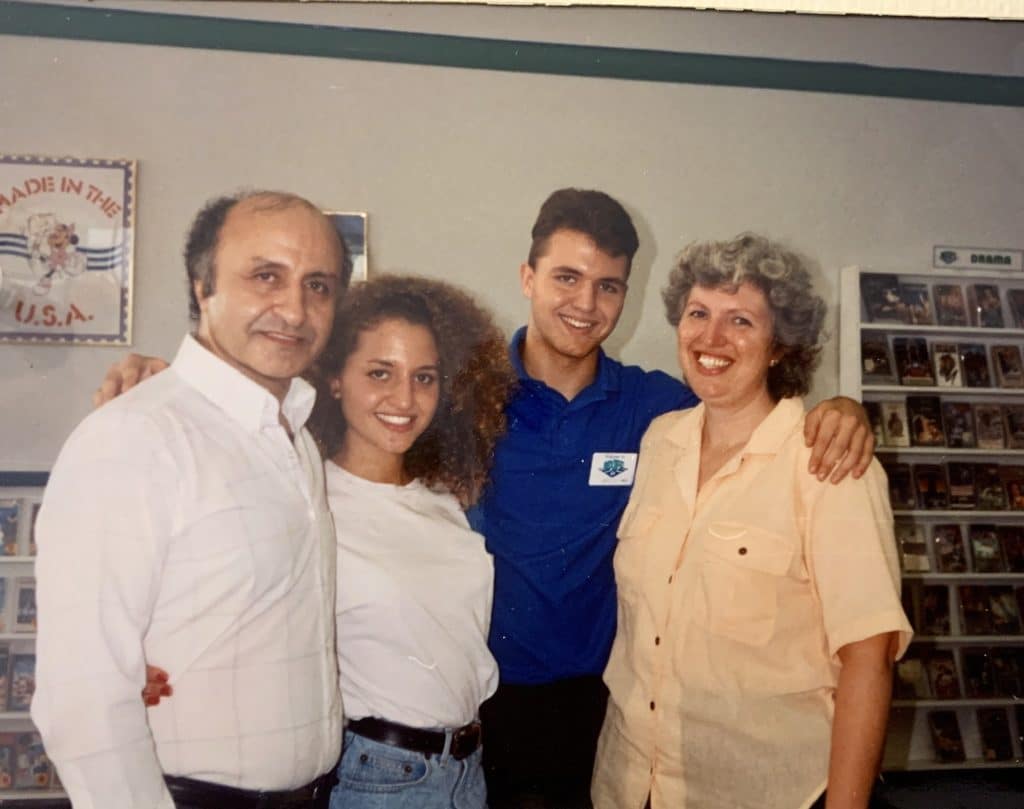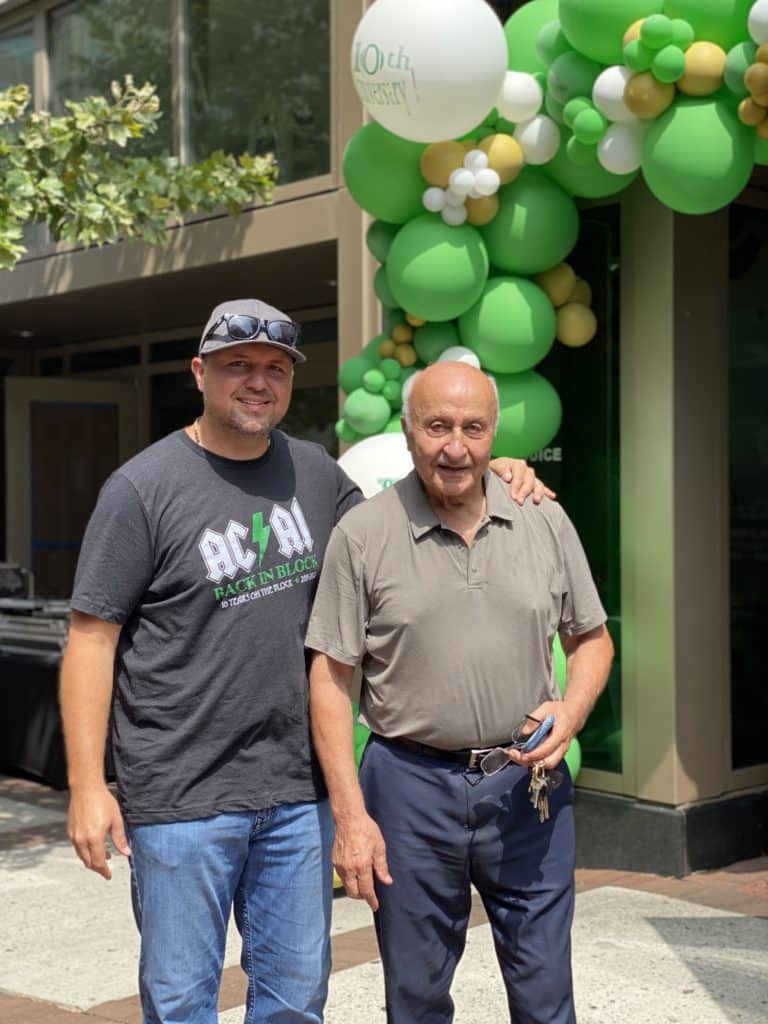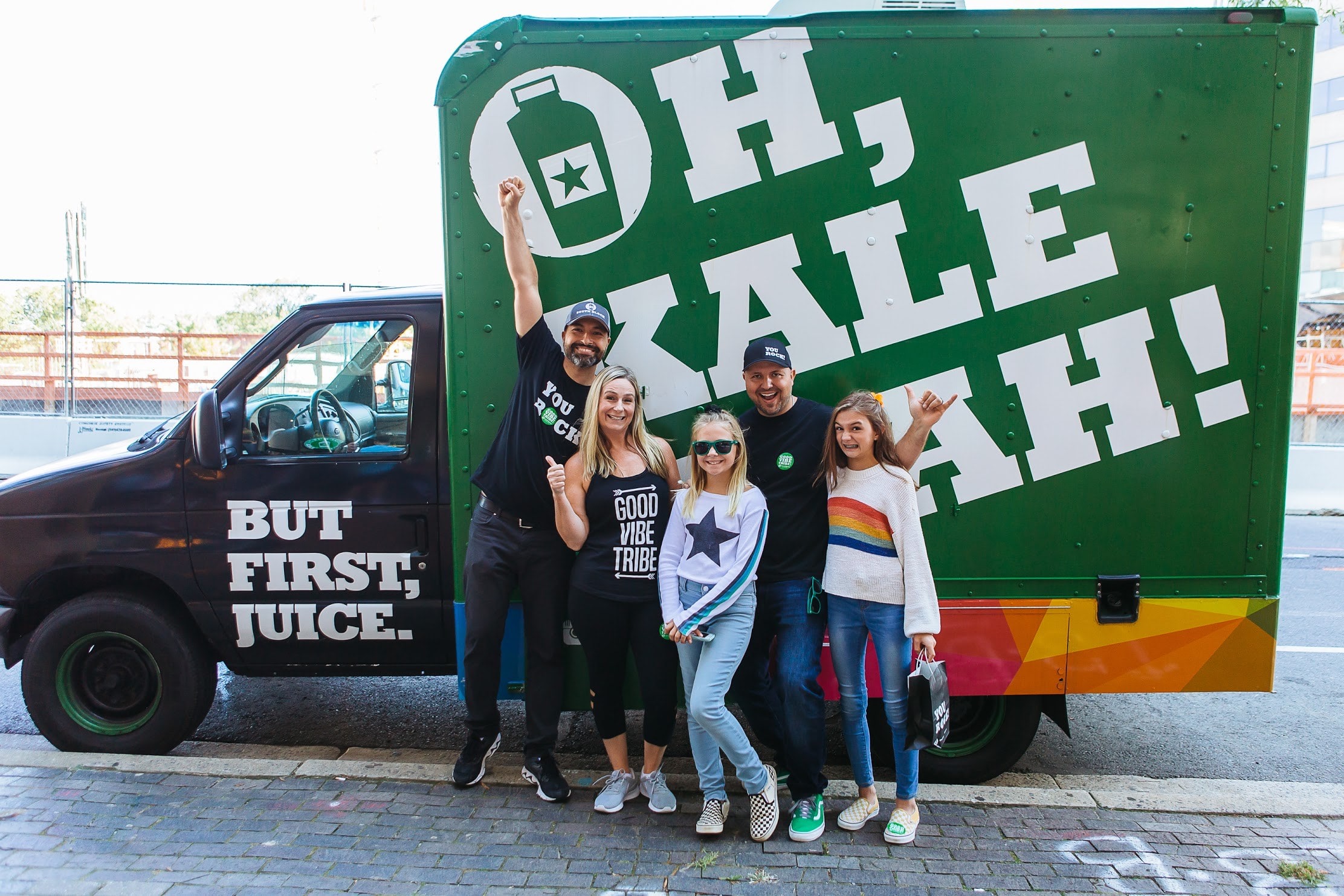Meet Amir Mostafavi, the owner/founder/CEO of South Block Juice Co. — Northern Virginia’s first Cold Pressed Juice company which celebrates it’s first anniversary in McLean’s Chesterbrook Shopping Center next month.
Behind the scenes: South Block
I grew up in McLean. My dad [Hassan] had a video store in the Langley Shopping Center in the late ’80s, ’90s, through the early 2000s. I went to McLean High school, Longfellow [Middle School], Kent Gardens [Elementary School]. I always wanted to be in McLean. I knew we would end up in McLean one day. I always would drive through McLean and daydream about where we are going to go.
I started in the juice bar business soon after college in 2004. I started the brand South Block in 2011 in Arlington. The McLean location will be our 14th location. When I signed the lease in Pike & Rose in Maryland, it was our first Maryland location, it’s with Federal Realty. They bought the Chesterbrook shopping center and so they presented that opportunity to me there. I was very familiar with Chesterbrook shopping center. I was excited to know they were planning to do a renovation as everyone knows in McLean, it’s overdue for a face lift. It felt like that was the right time and the right spot to go in there.
Glory Days at Box Office Video
That was pretty much all of my high school and even college when I came back. I actually designed the logo. I’d always been into art. I ended up going to school and getting my degree in graphic design. I created that logo I want to say when I was in 8th grade, so I was probably 13 or so. That was the first logo I ever did, that propelled me into graphic design. I went to Virginia Tech and I spent my summer vacations working in the video store, a good 8 years. A lot of my friends from high school worked there. It was a community gathering spot for McLean. When I started my juice bar, I took a lot of those lessons from the video store with me. A big lesson was the connection to the community we had there. My mom, Mary Ann, who passed away in 2019, worked a lot of the daytime shifts and she had her own book of Mary Ann’s picks. People would come and they’d know her, she’d know them and she would know what movies to recommend to them. I saw that connection to people and to the community and the support we got from the community that really allowed us to be in business all those years in McLean. With South Block, every community we go to we try to build that connection with the people in that community because I know how important that is to the success of the business.
South Block; All in the family
My dad, who lives in Vienna now, owns a restaurant there now called Rose Kabob. He retired for like a month or two, he can’t stop. My brother Rahmein works with me. I convinced him to join me in South Block four years ago. My youngest brother Ali is an investor in the company, I’ve only raised money from friends and family. My sister Roya is not officially involved but she’s done things to help with some store openings. She’s a National Sales Director at Mary Kay and so she’s worked with a lot of women to empower them in the workplace. I brought her in to show people some soft skills.

The Box Office Video crew back in the day: Hassan, Roya, Amir and Mary Ann
Business with a “purpose”
Our mission is to help build healthier communities one block at a time. Over the years, I started really embracing that and sharing that with our team. We have over 250 people in the company now. I think what motivates people to be a part of South Block is we’re big on people development and we’re big on giving back to the community. In fact, I started a non-profit, Fruitful Planet, that I created when my mom passed away. We were already, through South Block, giving back to food banks in the community. They have a consistent need for fruits and vegetables, so I started filling that void. When my mom died I saw that opportunity to make that mission official. We take a percentage of our sales at South Block that go directly into Fruitful Planet and then we use all of those funds to buy fruits and vegetables to donate to food banks. In the community, we partner with the schools to make sure low income students have access to fruits and vegetables because part of our mission is to build healthier communities. We want to make sure we’re supporting everyone in the community, not just people that can afford to eat at South Block. We’ve donated over 50,000 pounds of fruits and vegetables.
South Block: The menu
I have never been a health food nut but there’s a connection for me there from childhood and having great experiences around fruit and vegetables. My dad, who is an immigrant from Iran, came here when he was 19. He didn’t know any English, taught himself English, he met my mom and eventually moved back to Iran. He was a professor at an Iranian university and they sent him over here in the late ’70s to get his PhD at Kent State University. During that time, the revolution started in Iran so he lost all of his funding from the University to get his PhD, his housing, then he lost everything in Iran too. Here they are a young couple with four kids, where they lost everything for a short period of time. We were on food stamps, thrift clothes but during that time it was still important for my dad to get us fruits and vegetables. He would never go to the store unless it was to bring home bags of fruits and vegetables. It was important for him for us to have that nutrition. So when it came time for me to think about what kind of business I wanted, I thought about that.
That’s also where I also saw how important it was to get support from your community during those times. That’s another reason why I wanted to create Fruitful Planet, to be able to give back to support people because we got that as we needed it. My dad still fought his way through it. He got his PhD, he figured out a way to move forward and that was a big lesson to me as a kid, seeing no matter what life throws at you, having perseverance and grit and adaptability, then here’s a way. You never give up, you find a way to make it through.
In San Diego, where I had friends and family, I would go to the juice bars. I just loved the smells, the colors of the fruits and vegetables. They were doing it a different way then anything we had in the D.C. area: The quality was better; I loved the vibe, it just felt positive, and relaxed. I wanted to bring that vibe, that experience, that quality of fresh fruits and vegetables to the area. So that was my inspiration when I got started. I really had no idea what I was doing and I kind of figured it out along the way. My first juice bar was at George Washington university.
Experience in the food biz
Prior to starting my business, I had two weeks of experience in a sandwich shop in Virginia Tech. That’s my only food service experience and I quit because my manager was a jerk. My rule number one is “Don’t be a jerk” because if you are, your employees will quit. That was the first thing I learned. That’s our number one rule for our leadership team at South Block. That was a great lesson. I had a knack for developing smoothie recipes and juice recipes and acai bowls. For me that was the easy part, the hard part was figuring out all the logistics of running a business and then making sure we’re building that connection to the community because even if you have a great product, it doesn’t matter if you don’t have that connection.
I subscribe to a business philosophy called the blue ocean strategy. What we do is we just try to do the best we can with our business and our customers and not try to get caught up with who we’re competing with and where they’re going. Some businesses get caught up in the red ocean strategy which is going to battle with your competition and trying to open near them, to take their business. There are certainly other places that sell similar products. We put a lot of attention and care into the quality we serve. One thing that sets us apart in the way we make our acai bowls is that we make them to order, they are blended to order. I’ve been doing it this way since 2005. I learned how to make them from this surfer dude in San Diego, he introduced me to acai. He showed me how to make bowls the traditional way they make them in Brazil. I haven’t changed the way we make them even though it is more labor intensive. I’m big on doing it these traditional ways, not cutting corners, not cheapening the product. We take a lot of pride in the quality.

Like father, like son
South Block: 6246 Old Dominion Dr, McLean, VA 22101; https://www.southblock.com/
Interview by Gayle Jo Carter, editor McLean Today
Do you know someone in McLean who would make an interesting interview for TALK? Click here to nominate them.

